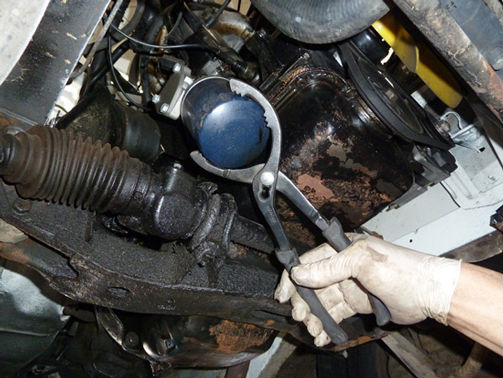“Looking after the oil in your engine is the single most important step you can take to ensure trouble-free running and long-term survival of the motor”.
It is true that the operating clearances within modern engines are closer than in days gone by, so in theory they should use less oil. However, it is also true that oil sump capacities in recent cars are smaller than in their predecessors, and there is less margin for error in terms of the oil level and operating temperature.
Noting the following points could save time, hassle and most importantly, LOTS of money…
1. The engine oil level is critically important, especially on modern engines with electronic management systems. In many cases the oil is relied upon to activate hydraulically operated components, so a low oil level will mean that the engine can’t run efficiently.
2. It is essential that the engine doesn’t run short of oil, because that’s all that separates moving metal components. Lack of oil equals friction equals excessive heat equals (eventually) complete seizure, then a new engine or a rebuild will be needed, often costing thousands of pounds (and in many cases more than the vehicle is worth in financial terms).
Weekly oil level checks are worth carrying out. Ideally keep the oil at (but not above) the ‘max’ mark on the dipstick. Always check the oil before and after a long journey, and top us as required with the correct grade of oil as listed in your car’s handbook. Before checking the level, always ensure that the car is on horizontal ground, and allow the oil to settle for, say, 15 minutes after running, prior to checking the level.
3. Always use high quality oil and filters, to ‘original specification’ level.
4. Have the oil and filter changed regularly. Running with time/mileage expired dirty oil will result in rapid engine wear and huge costs.
Independent specialists advise that it is always preferable to change the oil and filter ahead of recommended change intervals, rather than over-running them.

5. Some manufacturers of modern cars endow them with ‘variable’ service periods, with the engine management system being relied upon to flag up when an oil change/service is due.
Of course with a car still under warranty you must adhere to its terms relating to servicing, or it could be rendered void. Nevertheless, for optimum engine life for any vehicle, many specialists advise sticking to changing the oil and filter at least every 6,000 miles/six months (whichever comes first). If you are concerned about warranty aspects, you could always check with your dealer. Assuming that warranty requirements are not infringed, request that they change the oil and filter ahead of the time when the change is said to be due.
6. Some engines run for mega-mileages without trouble. In the vast majority of documented cases, the operators tell the same story, that the unit concerned has been treated to regular oil and filter changes throughout its life.